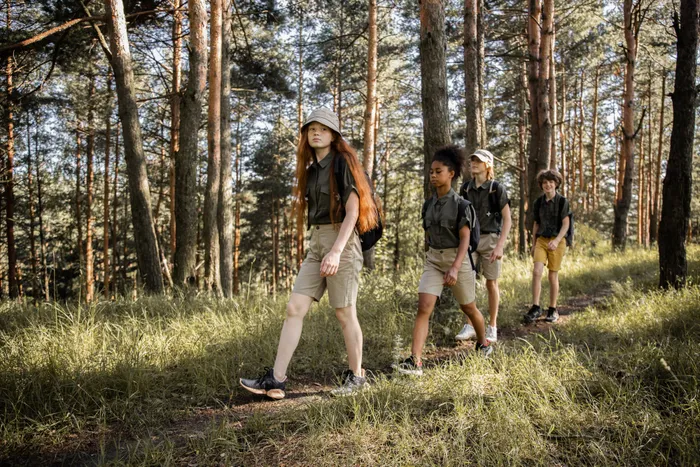How to plan and prepare for a hike as a beginner

Hiking is a fun, relaxing way to experience the great outdoors. Picture: Pexels/Ekaterina Bolovtsova
Hiking is a fun, relaxing way to experience the great outdoors with friends and family. When you go on a hike, you get to explore places in nature that roads cannot reach.
If you are new to hiking, starting can feel a bit intimidating, so we have created this guide to make sure your introduction to hiking is enjoyable and super safe.

Plan, and check the weather
For beginner hikers, choosing a good-weather day to ensure a good experience. You may not want the weather to get in the way of your hike, but poor conditions can often cause accidents or make a hike just plain miserable.
Even if you plan to do the hike rain or shine, check the weather ahead of time so you can prepare yourself with the gear you will need to stay dry and safe.
Find a hiking partner
If you have friends who hike, ask them to take you on a trek. Most people are happy to share their expertise, let you borrow their gear, and introduce newbies to their favourite trails.
If you do not know any hikers, many cities and towns have hiking clubs that regularly plan outings.
Sort your hiking gear
No matter if your hike lasts an entire weekend or is a short hike of just a few hours, you will need to have the right hiking gear on you, in case of emergencies or accidents. That means packing the right clothes, equipment, and accessories.
Even the clothes and shoes you wear are important. Footwear can make the difference between an enjoyable hike and hours of pain. For relatively flat and easy trails, a pair of running shoes should do.
But if you are tackling rough and rocky terrain, you will appreciate the ankle support offered by a high-top hiking boot. Whatever you choose, prevent blisters by making sure your shoes fit right and are well broken in.
Choose a trail
When you start, pick something easy. Most capital cities and larger regional towns will have well-maintained urban hiking and walking trails of varying lengths that require no navigation skill.
Start short and flat and then build up to steeper longer trails.
Drink water and eat food
Do not hike on an empty stomach. You will have less energy and your hike will be less enjoyable. Instead, before you begin, drink plenty of water and eat some carbs and lean protein.
Think oatmeal, chicken breast, eggs, yoghurt, and dried fruit. That does not mean you are off the hook while hiking either. Regardless of the length of your hike, always bring water.
The effects of dehydration are severe and begin sooner than you think. Bring some snacks too, ideally, ones that do not take up too much space, are easily digestible and are not too messy.
Understand your map if you are navigating
Understanding where you are and where you are going is key to enjoying your hike. A combination of electronic navigation and paper is a good route for hiking beginners.
To start, print out the hiking guide and map. If it is raining, throw them in the bag. Read over the guide, study the map and have a good idea of what to expect.
Related Topics: